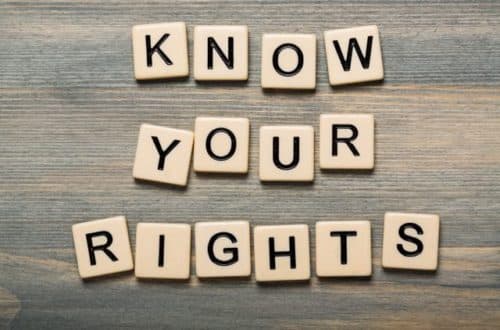When Are Leaks Protected? Know Your Rights!

There has been a lot of talk in the media the past few of days about leaks. What is a leak? Who is a leaker? What leaks are protected?
In the beginning of the week, we learned about the arrest of Reality Winner for allegedly leaking classified information to a news website. Leading whistleblower attorney, Stephen M. Kohn, discussed the risks of leaking and steps to take before “blowing the whistle” to Teen Vogue.
“[Winner] committed the most fundamental mistake for blowing the whistle,” Kohn told The Huffington Post, “Not learning your legal rights first. … There are ways that you can bring information public that are legal and protect you, and there are ways that will bring you down.
Kohn, the author of The New Whistleblower’s Handbook(Lyons Press, 2017), took the news media to task for not doing more to protect their sources stating, “The news media needs to be more careful and protective of their sources. In numerous cases, whistleblowers are fired or indicted for a crime, while the media outlet that printed the disclosures suffers no harm (and may profit from the information).” Kohn went on to say that journalists “should publish clear ‘whistleblower policies’” explaining how they plan to protect leakers from being identified.
On Thursday, Kohn published an analysis of Former FBI Director James Comey’s Senate testimony in The Washington Post. During the Senate hearing, Comey admitted to being the anonymous leaker behind the release of a memo documenting his conversations with President Donald Trump.
“The vast majority of anonymous leaks are fully legal, many serve the public interest … and they are recognized as fully protected speech by the U.S. Supreme Court,” Kohn said.
Nonetheless, President Trump’s personal attorney, Marc Kasowitz, announced plans to file official complaints regarding Comey’s leaks. Kohn told Washington Post reporter Phillip Bump that Kaswitz’s threats are no more than “frivolous grandstanding.”
“Initiating an investigation because you don’t like somebody’s testimony could be considered obstruction. And in the whistleblower context, it’s both evidence of retaliation and, under some laws, could be an adverse retaliatory act itself,” said Kohn.
Kohn further explained that the information Comey leaked was not classified because of “the constitutional right to go to the press with matters of public concern.” Regardless of this right, the President and his team seem intent on causing a “chilling effect” and that is “unconstitutional.”
Regarding the questions: What is a leak? Who is a leaker? What leaks are protected? before you become a leaker, contact an attorney who is well versed in the area of whistleblower protection.
Related links:
Latest News & Insights
February 24, 2026
February 24, 2026
February 16, 2026




